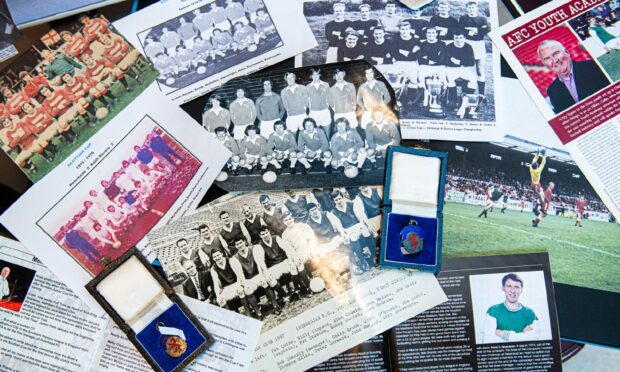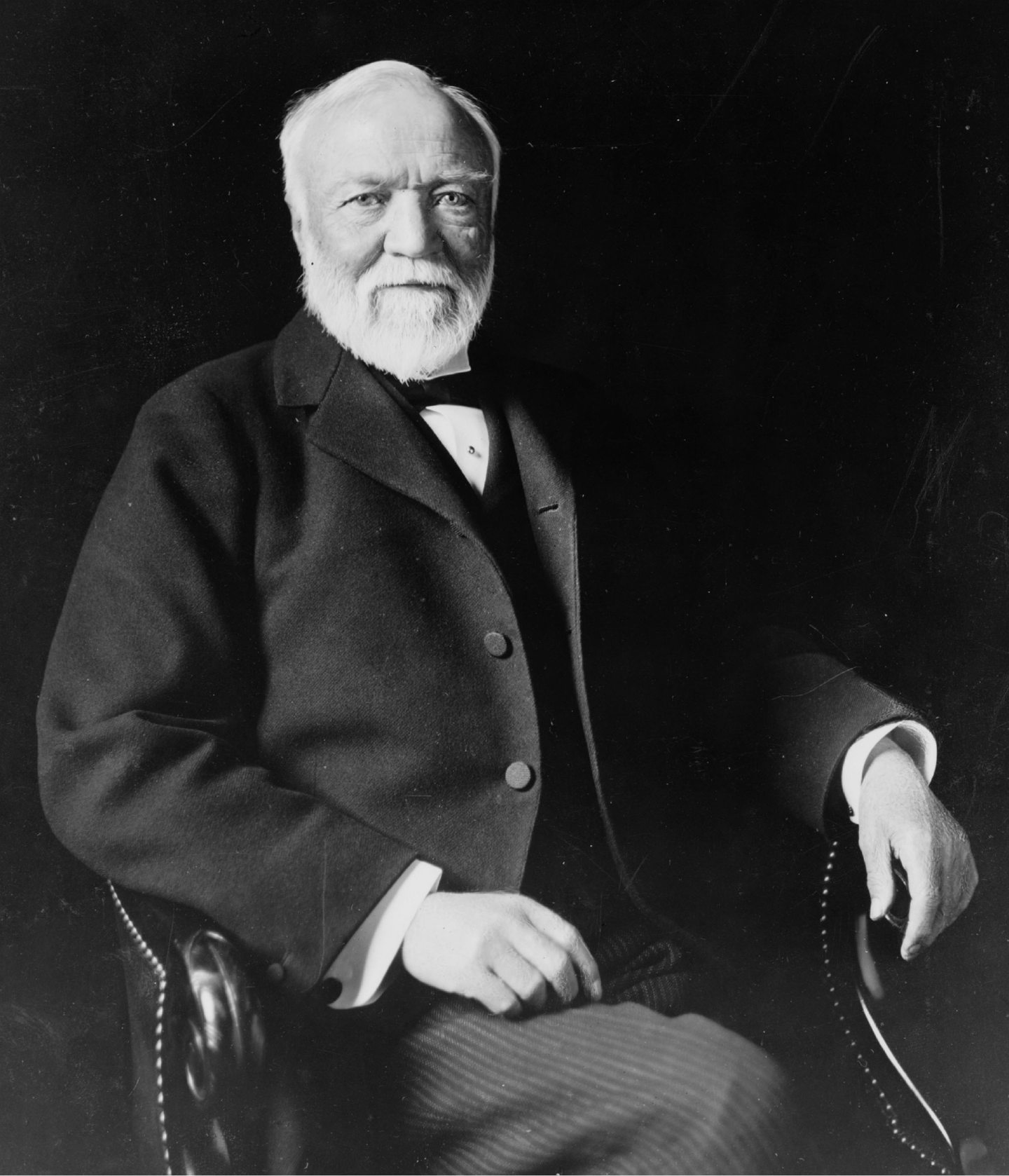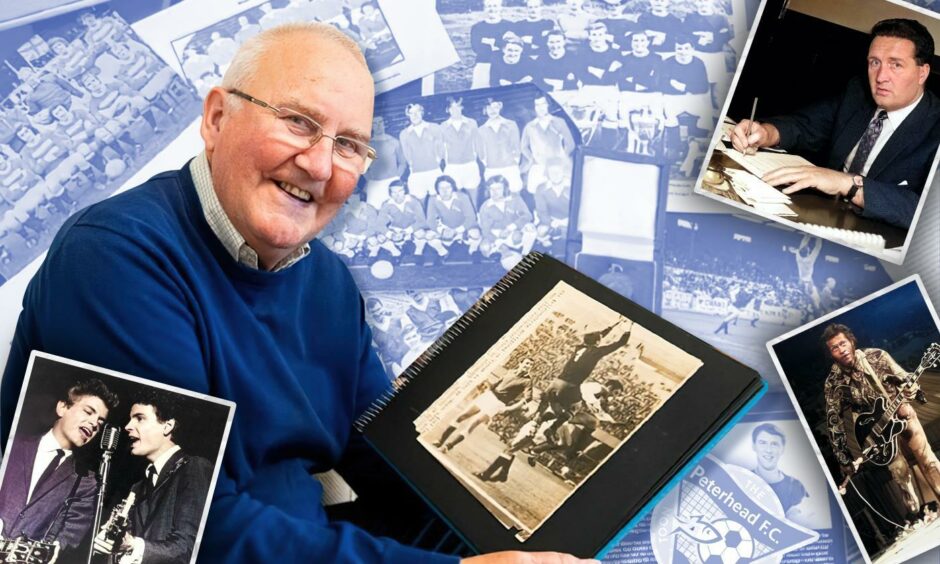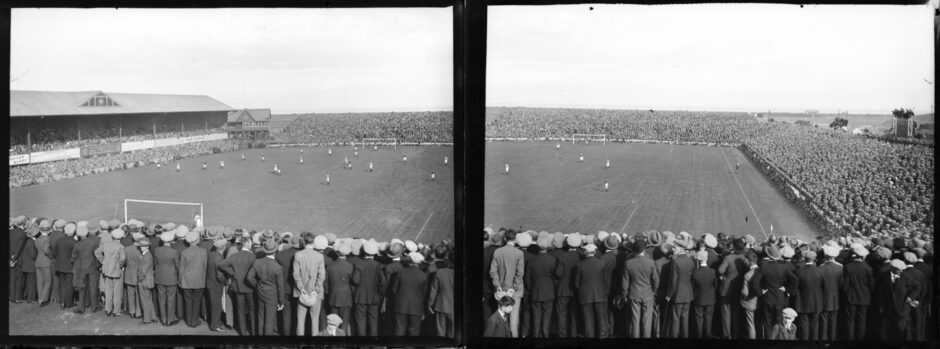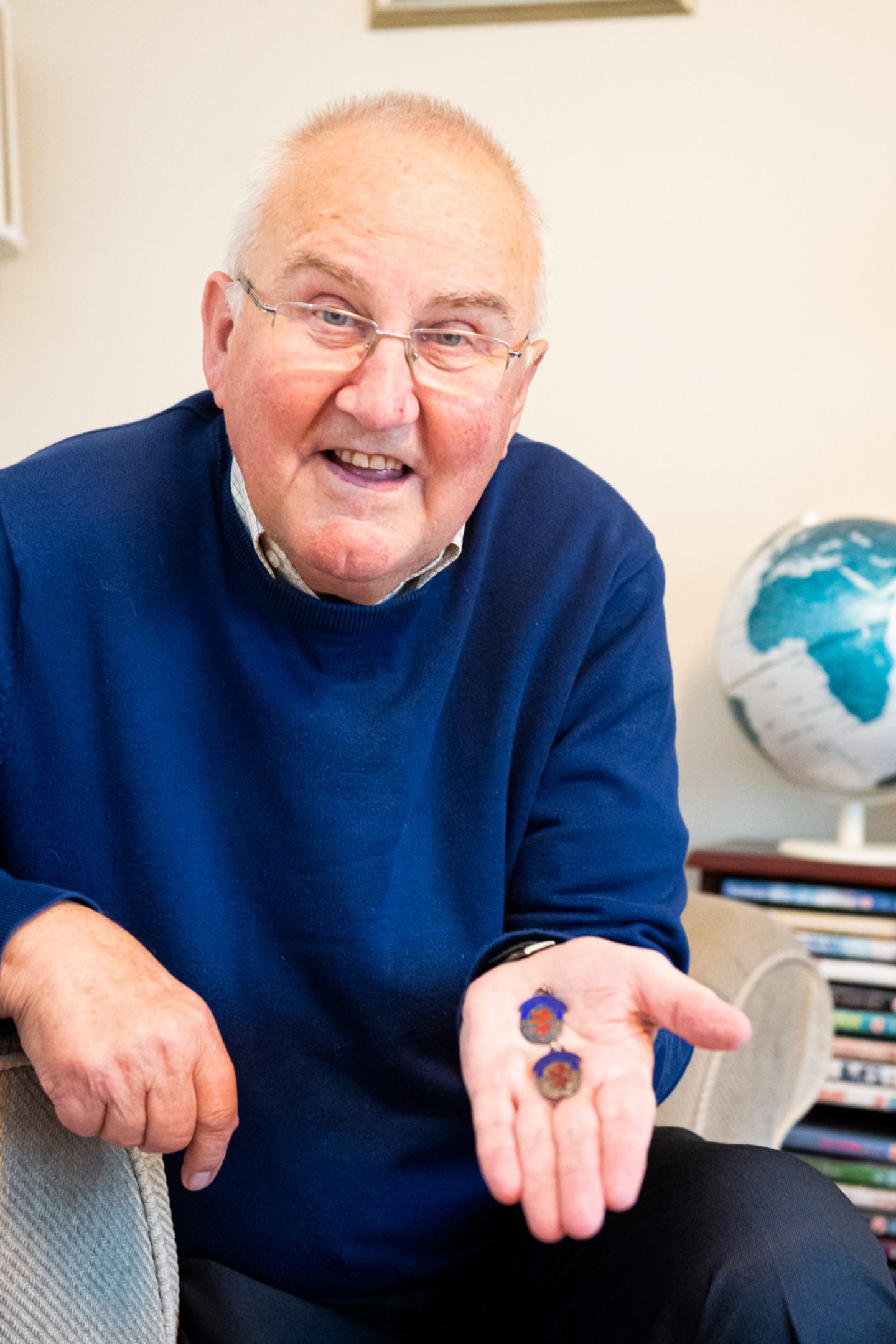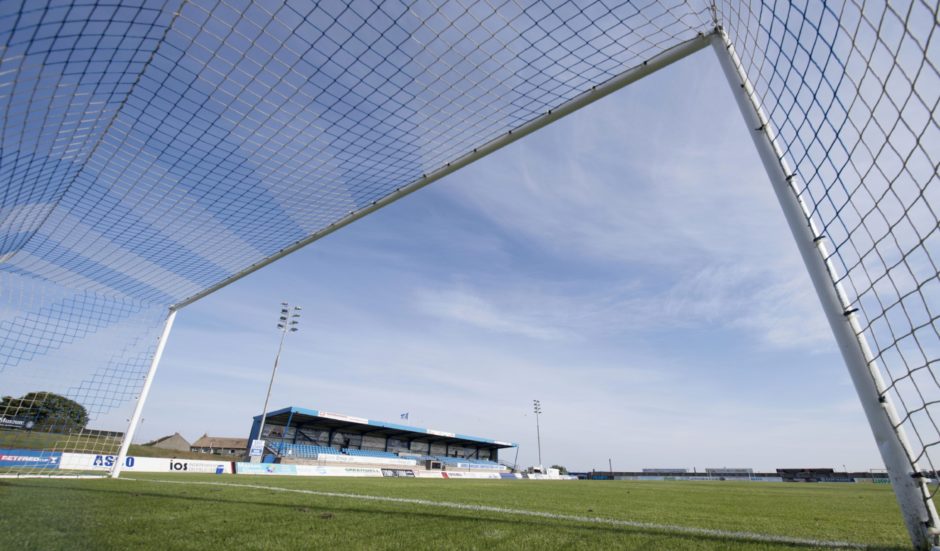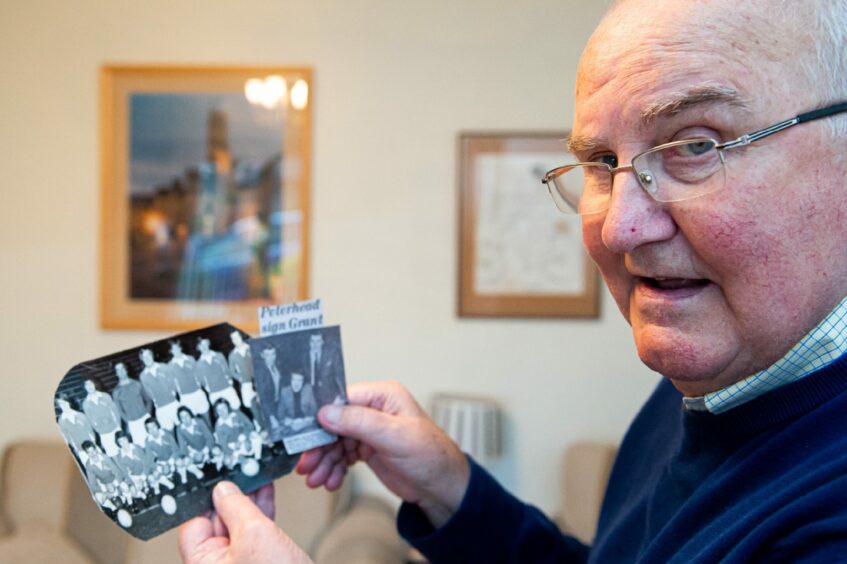There was no shortage of dignitaries with deep pockets when Peterhead FC first brought football to the Blue Toon 130 years ago.
Back in August 1891, a group of local youngsters who had previously played on ‘The Links’ of the north-east community, joined forces, formed a committee and resolved it was time to create a venue for their activities.
The new pitch was quickly christened Recreation Park and its opening that summer was a grand affair.
It involved the Provost John Smith being accompanied by Charles Hay, the 20th Lord Earl of Erroll, and US-based, Dunfermline-born philanthropist Andrew Carnegie, whose name has become a byword for vast wealth and charitable investment.
These panjandrums officially opened the facility, much to the delight of the local players, and, as the hours passed, it turned into a gala occasion – and not only for sporting enthusiasts, with the hostelries doing a roaring trade.
Earlier in the day, Carnegie had also launched Peterhead Library and it was an open secret that it was his substantial financial contribution to the town that had been the catalyst for the funding and creation of both facilities.
This was a day of genuine celebration in Peterhead and it was reported in the Press & Journal that British Rail decided to provide a special 10.30pm train from Peterhead to Maud to take many “merry revellers” home that night.
But there were plenty of other times where Peterhead struggled on the field – and, as Colin Grant’s new book reveals, one of the toughest and most controversial games brought the biggest defeat they have ever suffered.
Colin, an ebullient fellow whose CV encompasses everything from being signed by Jock Stein at Hibs to lifting the Scottish Junior Cup with Linlithgow Rose, unwittingly sparking a riot in Canada and helping Aberdeen unearth a string of precocious pearls in the early 21st Century, is blessed with a natural bonhomie that makes him compelling company.
Ever since he pitched up in the Blue Toon in the 1970s, the 77-year-old has been involved in many different roles as player, manager, vice-chairman and chairman, while he was also a pivotal figure in orchestrating the former Highland League club‘s elevation into the Scottish national structure.
Yet, although his history of the club to which he had dedicated many decades of his life accentuates myriad positive stories from the chronicles, he hasn’t been afraid to discuss the days when things went in the other direction.
And that was certainly the case on a dank winter’s afternoon in 1923: one that chilled the Blue Toon participants to the bone as their rivals ran riot.
Money was in short supply after the First World War, but Peterhead FC soldiered on, their officials never quite sure whether they were on the verge of a windfall or a catastrophe.
And, as Colin discovered, it was filthy lucre which played a prominent part in the most embarrassing result in the club’s history.
He said: “In the 1922-23 Scottish Cup, (non-league) Peterhead had twice travelled to Ayrshire and beaten Third Division opponents.
“In the first round, they defeated Beith 1-0 and then, in the second round, they got the better of Galston by the same scoreline to advance, almost unbelievably, to the third round of the national tournament.
“Just imagine the excitement in the town when Peterhead were drawn at home to Aberdeen FC. It was even mentioned at the time that the Dons did not fancy their chances against a strong-going Blue Toon team.
“But, knowing all about Peterhead’s financial woes, the news emerged that Aberdeen had made them an offer to switch the game to Pittodrie and give them £300 as an incentive to change the venue.
“I know there is a contradictory version of events in some Aberdeen FC records, which argues that it was actually Peterhead who requested the change of venue first and appealed to Aberdeen with finance in mind.
“But, whatever the truth of the matter, and much to the consternation of the local footballing fraternity, the Peterhead committee agreed to the switch and the players were incandescent with rage.”
These were passionate lads who were proud of their roots and local heritage and believed they could provide the Dons with a real challenge in front of their vociferous supporters at a packed Recreation Park.
So they were aghast at the notion of ceding home advantage for a fast buck and their opposition went much further than the club had envisaged – to the extent where they downed tools and walked away.
All of which made life far more difficult as the contest approached.
Colin said: “At least five of the players refused to play and Peterhead were forced to draft in some Aberdeen University students to make up a team.
“As you can imagine, it was no-contest. Aberdeen were three goals up inside the first 10 minutes of the game and were 5-0 ahead at half-time.
It turned into a terrible rout
“The match was played on February 10 1923, in torrential rain on a cold afternoon and it was reported that two Peterhead players left the field halfway through the second half, because they were suffering from exposure.
“The final score was 13-0 to Aberdeen, the worst result in Peterhead FC’s history.
“But, because of the weather, the expected large crowd never materialised and only 3,241 hardy souls attended the game.
“With only £181 taken in gate money, Aberdeen were well out of pocket (and were left with a deficit of nearly £120) after paying Peterhead their £300 guarantee. So it was a bad day all round for everybody concerned”.
The missing players, who had effectively gone on strike, subsequently left the club, formed another local team called The Wanderers and went back to The Links to play their games in front of decent crowds.
By contrast, Peterhead continued to perform at Recreation Park in front of precious few spectators.
Thankfully, as the years passed, they gradually improved their situation, on and off the pitch – and there would be plenty of triumphs in the Highland League as the century progressed – but Colin has not glossed over how unlucky 13 turned out to be for his heroes.
The book is a labour of love for Colin, a project he embarked upon during lockdown, and he admits he couldn’t have brought it to fruition without the help of his 21-year-old grandson, Cameron Grant, a fourth-year student at St Andrews University.
Understandably, the author has given plenty of prominence to such figures as Martin Bavidge and Jim McInally, while his new work recalls times when George Best spoke at a Peterhead function and Alex Ferguson and Archie Knox did their homework on the Balmoor opposition – who were managed during the 1981-82 campaign by former Dons striker Joe Harper – prior to another less memorable meeting between the north-east sides.
Book has chapter and verse on Peterhead FC
But he has also emphasised the exploits of some of the quirkier, more elusive characters who paraded their talents at Recreation Park in the days before the club moved to their current home at Balmoor in 1997.
Johnny Martin, for instance, was a member of the Peterhead team in the late ’40s: a regular goalscorer, will o’ the wisp and a mesmerising entertainer with the ability to beat opponents with his great dribbling skills.
As Colin says: “Although not the tallest of inside forwards, his boundless energy and clever use of the ball always gave opposition defenders something to worry about.
“And Johnny was a very important member of the Peterhead team that won the Highland League title in seasons 1948-49 and 1949-50.
“Another real highlight in the Aberdonian’s career was scoring for the Peterhead/Fraserburgh select against a star-studded Celtic side in April 1949.
“The match was played at Recreation Park and Johnny was named captain just prior to kick off when Dodie Buchan failed a fitness test.
“More than 6,500 spectators watched the match where the Celtic team included future Manchester United and Scotland boss Tommy Docherty.
“Sadly, Johnny passed away in 1971, aged just 49.”
However, he has now been immortalised in the pages of Colin’s absorbing, fact-filled work: a book, one suspects, that will be unwrapped as a gift in many households in the Blue Toon in a few weeks’ time.
- Colin Grant’s history of Peterhead FC, which is raising funds for Alzheimer’s Scotland and the My Name’5 Doddie Foundation, is available on Amazon.
